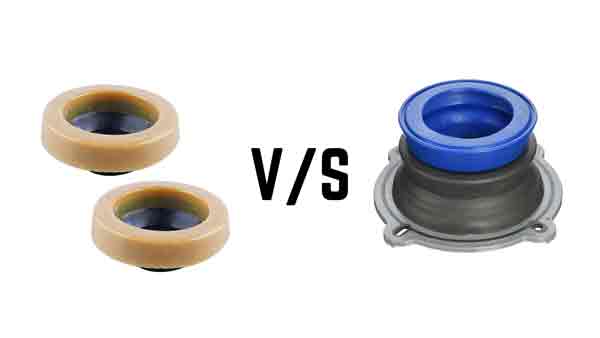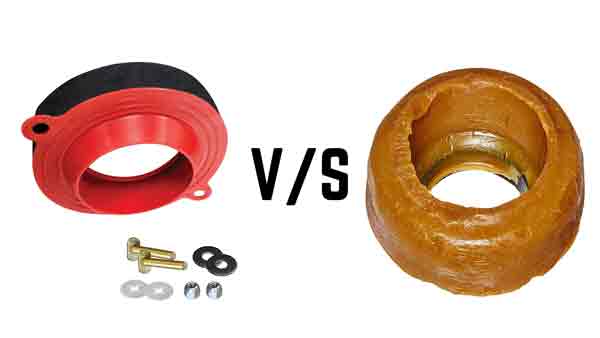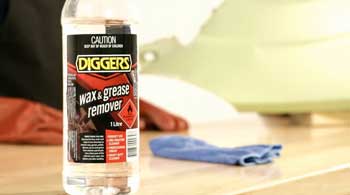The Benefits of Using Polyurea Grease in High-Temperature Environments

Polyurea grease is a synthetic lubricant that was developed in the 1960s. It is made up of a polymer and an amine, and it has a number of advantages over other types of lubricants.
Polyurea grease is more resistant to water and chemicals than other types of grease, and it can withstand high temperatures and pressures.
Polyurea grease is also less likely to cause corrosion than other types of lubricants.
Polyurea grease is a type of lubricant that is made from polyurea, a synthetic polymer. This grease is designed to provide superior performance in high-temperature and high-pressure applications. It has excellent resistance to water, chemicals, and wear.
Polyurea greases are used in a variety of industries, including automotive, aerospace, and manufacturing.

Polyurea Grease Vs Lithium
When it comes to choosing a grease for your applications, you may be wondering what the difference is between polyurea grease and lithium grease. Both types of grease have their own advantages and disadvantages that you should consider before making a decision. Polyurea Grease:
Advantages:
- Polyurea grease has excellent resistance to water washout. This means that it will still lubricate your bearings even if they’re constantly exposed to water.
- It also has good resistance to high temperatures, making it ideal for use in high-heat applications.
- Polyurea grease is very resistant to oxidation, so it won’t break down as quickly as other types of greases when exposed to air.
Disadvantages:
- Polyurea grease can be difficult to work with because it’s so thick. You may need special equipment to apply it properly.
| Polyurea Grease | Lithium |
| Polyurea grease is mostly preferred material for lubrication over greases and oils. | lithium grease is also good for lubricating bearings. |
| Polyurea grease has a very low coefficient of friction and the lubricant is non-volatile so it does not harm the grease or oil seals. | lithium grease does not have corrosive properties and has a lower coefficient of friction than polyurea grease. |
| Polyurea is easy to wash away, and it is the grease that is recommended to be used on the bearings. | lithium grease has higher viscosity rubber than polyurea grease. |
| Polyurea grease has a long shelf life. | Lithium grease is a volatile lubricant and can be used for a limited period of time. |
Polyurea Grease Brands
If you’re looking for top-quality polyurea grease, you can’t go wrong with one of these brands. each has its own unique formula that provides outstanding performance in a variety of applications.
Lubriplate is a trusted name in the lubrication industry, and its polyurea grease is no exception.
This product is designed for use in high-temperature applications and provides excellent resistance to water washout. It’s also resistant to oxidation and has good shear stability. Kluber Grease 33-611 is another great option for polyurea grease.
This product has the excellent load-carrying capacity and wears protection properties. It also resists water washout and has good oxidation resistance. Shell Gadus S3 V220C 2 is a versatile polyurea grease that can be used in a wide range of applications.
It offers excellent wear protection and load-carrying capacity, as well as good resistance to water washout and oxidation.

Read More About Wheel Bearing Grease Vs Regular Grease
Polyurea Grease near Me
As you may know, grease is a lubricant that helps keep things moving smoothly. It’s made up of various oils and can be found in many different types of products, from car engine oil to the cooking spray you use on your pans.
Polyurea grease is a specific type of grease that’s known for its high performance and long-lasting properties.
While it’s not as commonly found as other types of grease, it can be worth seeking out if you need a reliable lubricant for something important. So, where can you find polyurea grease near you?
Here are a few places to check:
1. Auto parts stores
If you have a local auto parts store, they may carry polyurea grease or be able to order it for you. This is especially likely if they cater to customers who work in their own vehicles or race cars.
2. Online retailers
A quick search online will reveal several retailers that sell polyurea grease (and other types of greases). This option is convenient if you don’t have any local stores that sell it.
3. Industrial suppliers
If you need large quantities of polyurea grease (or other industrial-grade lubricants), an industrial supplier may be your best bet. They typically sell larger sizes than retail stores and may offer bulk discounts.
4. Manufacturer websites
Some manufacturers (such as those who make bearings or other greased components) sell their products directly to consumers via their websites. This can be a good option if you’re looking for a specific brand or product type.
Is Polyurea Grease Synthetic
Polyurea grease is a synthetic, high-performance lubricating grease. It is made from a polyurea thickener and a synthetic base oil. This type of grease has excellent resistance to water, high temperatures, and extreme pressures.
It is also resistant to oxidation and corrosion. Polyurea grease can be used in a variety of applications, including automotive, industrial, and marine applications.

Lucas Polyurea Grease
Lucas Polyurea Grease is a high-performance grease that provides excellent wear protection and extreme pressure properties.
It is formulated with a unique polyurea thickener that gives it outstanding properties. This grease also has excellent resistance to water washout and will not break down in high-temperature applications.
Polyurea Grease Vs Moly
If you’re looking for a high-performance grease for your industrial applications, you may be wondering whether to choose polyurea grease or moly grease.
Both types of grease have their own advantages and disadvantages, so it’s important to choose the right one for your specific needs. Here’s a closer look at the key differences between polyurea grease and moly grease:
Polyurea Grease:
Advantages:
- Polyurea grease has excellent wear resistance properties, making it ideal for high-speed and/or heavy-load applications.
- It also has good water resistance properties, meaning it won’t wash out easily in wet conditions.
- Polyurea grease is very temperature stable, meaning it can withstand high temperatures without breaking down or losing its performance properties.
Disadvantages:
1. Polyurea greases can be difficult to work with because they’re extremely thick and viscous. This can make them difficult to apply evenly in some cases.
Shell Polyurea Grease
If you’re looking for top-quality grease that can withstand extreme temperatures and pressures, then you need to check out shell polyurea grease.
This type of grease is made from a polymer that is resistant to degradation, meaning it will last longer and perform better than other types of greases on the market. Shell polyurea grease has excellent lubrication properties, making it ideal for use in high-speed applications.
It also has great water resistance, making it perfect for use in wet environments. Plus, it’s relatively easy to apply and remove, so you won’t have any trouble getting it where you need it.
If you’re looking for top-quality grease that can handle whatever you throw at it, then shell polyurea grease is the way to go.
Polyurea Grease Uses
Polyurea grease is a versatile product with many uses. It can be used as a lubricant, sealant, or protective coating. It is also resistant to high temperatures and chemicals.
Polyurea grease can be used in a variety of applications, including automotive, aerospace, and industrial.
What is a Polyurea Grease?
Polyurea grease is a type of grease that contains a polymer compound. This compound gives the grease its unique properties, including resistance to high temperatures and extreme pressure.
Polyurea greases are used in a variety of applications, such as automotive, aerospace, and industrial machinery.

Read More About Marine Grease Vs Lithium Grease
Where is Polyurea Greases Used?
Polyurea greases are used in a variety of industries and applications. They are commonly used in the automotive, aerospace, and industrial sectors. Polyurea greases have a number of advantages over traditional grease formulations.
They are more resistant to high temperatures, have the higher load-carrying capacity, and exhibit better wear resistance.
Is Polyurea Grease Good for Wheel Bearings?
Polyurea grease is a synthetic, high-performance grease that has many benefits over traditional greases. It has excellent resistance to water washout and will not break down in high temperatures. Polyurea grease also has a good load-carrying capacity and wear protection.
It is an ideal choice for wheel bearings and other high-temperature applications.
Who Makes Polyurea Grease?
Polyurea grease is a type of lubricating grease that is made from polyurea, a synthetic polymer. Polyurea grease is known for its excellent resistance to water and high temperatures, making it ideal for use in applications where these conditions are present.
There are many manufacturers of polyurea grease, but some of the most popular brands include Mobilgrease XHP 222 and Kluber Grease HAD 54-60.
What is polyurea grease used for?
Polyurea grease is a type of high-temperature, thick, synthetic rubber that is used for sealing and lubricating metal parts. It has a very low friction coefficient, which means that it absorbs little heat or kinetic energy when in contact with the surrounding environment.
This makes it suitable for use in gas turbine systems during start-up phases and also ensures long-lasting durability against wear and tear. Its lubricating properties also make it suitable for use in gearboxes and sliding machine parts.
Is polyurea grease better than lithium thickeners?
Lithium thickeners are used primarily in powdered form and have very high viscosity, which means that they are better for use in high-temperature applications.
However, polyurea grease is ideal for high-temperature applications and has a lower viscosity. The lower viscosity also reduces the possibility of clogging as well as sticking to equipment.
What is a polyurea thickener?
A polyurea thickener, or just a thickener, is an additive that is used in polyurea coatings as well as paints. As the name suggests, a thickener features high viscosity that gives an increased thickness to the coating.
Thickness can be an important property of coatings as it ensures better texture and more consistent application. The increased thickness also increases the durability of paint products, especially against solvents and other chemicals, and makes them resistant to abrasions and scratches.
Polyurea thickener is also known as a polyurea resin and is a type of high polymer photo-catalyst. It is an effective catalyst for polyurethane and polyurethane epoxy systems, which are the common types of polyurea add-on systems used.
Although there are many types of polyurea thickeners, only one is suitable for use and this includes high molecular weight polyether polyols that have widely different properties.
What is the best grease for bearings?
The best grease for bearings depends on a wide range of factors, including the type of bearings and the application. For example, bearing grease can be of various materials and each material has its own set of characteristics.
Grease is used to lubricate moving parts and prevent any friction between them. It also reduces heat loss, and turbulence and prevents wear of surfaces.
There are many types of grease that can be used for bearings; these include lithium-based greases, polyurea greases, synthetic petroleum greases, etc. The best grease for bearings, however, depends on the application of bearings; where and under what conditions are they to be used.
Grease for bearing depends upon a wide range of factors such as life, performance, load, and temperature. Grease for bearings is of various types, and each is known for different advantages in certain applications.
Some greases can be lithium-based, polyurea-based or synthetic petroleum-based, etc. The type of grease should match the condition where the bearings are to be used.
What color is polyurea grease?
Polyurea grease is usually a clear, white, or yellowish liquid that is clear when it comes in contact with air. It can also be yellowish and cloudy when it comes in contact with solvents.
There is no color variation whatsoever in polyurea grease, but there are some greases that are yellowish and cloudy when they come in contact with solvents instead of air.
When should you not use Moly grease?
There are some factors that govern the use of Moly grease in certain types of machinery, but it is not applicable in all situations. You should never use Moly grease with bearings as it is not suitable for the lubrication of any material, especially metals.
Moly grease has very high viscosity which makes it unsuitable for use in bearing. It also forms a layer on the surface, which causes roughness and increases friction during rotation. It also increases wear rate and can shorten bearing life span.
What is polyurea grease used for?
Polyurea grease is a type of high-temperature, thick, synthetic rubber that is used for sealing and lubricating metal parts. It has a very low friction coefficient, which means that it absorbs little heat or kinetic energy when in contact with the surrounding environment.
This makes it suitable for use in gas turbine systems during start-up phases and also ensures long-lasting durability against wear and tear. Its lubricating properties also make it suitable for use in gearboxes and sliding machine parts.
What type of grease is best for wheel bearings?
The type of grease that is best for wheel bearings depends on a wide range of factors, including the type of bearings and the application.
For example, there are different types of greases that can be used for wheel bearings; these include lithium-based greases, polyurea greases, synthetic petroleum greases, etc.
The type of grease that is best for wheel bearings also depends on the life span and performance requirements; you should always choose grease which matches your application.
Grease for wheel bearings should be resistant to corrosion and have a good load-carrying capability. It should also match the operating condition of the bearings, thus not compromising the performance of the system.

Can you put too much grease in a bearing?
Yes, putting too much grease in a bearing can be disastrous. Excess grease can cause many problems such as corrosion, abrasion, and interference. It can also affect the performance of the bearings and cause damage to the machine or equipment.
You should always maintain Moly grease levels in your bearings; if there is any excess, you can wipe it off with clean rags till no traces remain.
Can you put too much grease in a wheel bearing?
There are some factors that govern the type of grease that you should use in wheel bearings. Grease should be resistant to corrosion and have a good load-carrying capability.
It also depends on the type of wheel bearings; for example, there are different types of greases that can be used for wheel bearings, these include lithium-based greases, polyurea greases, synthetic petroleum greases, etc.
Should you grease a bearing while it’s running?
It is not recommended to grease the bearing while it’s running. You can only grease the bearing when it is still in the process of operating.
If you are unable to remove the grease from the bearing, you should immediately stop using it and wait for a new batch of grease to be sent before assembling your machine.
Is Moly grease OK for wheel bearings?
Yes, Moly grease is OK for wheel bearings; however, you can use lithium and polyurea greases for wheel bearings too. It all depends on the type of wheel bearing and material. Wheel bearings are made up of metals such as steel, brass, and aluminum.
FAQ’s
Is lithium grease OK for wheel bearings?
Yes, lithium grease is OK for wheel bearings; however, you can use polyurea grease and synthetic petroleum grease as well. These greases are suitable for the lubrication of wheel bearings.
Can I use Vaseline to lube my bearings?
Yes, Vaseline can be used to lube bearings; however, you should not use it with gear oils as the greases for these types of lubrication differ.
Can you use WD-40 as bearing lube?
WD-40 should never be used as a bearing lubricant as it cannot resist the high pressure and heat that are generated under a heavy load. It also has low viscosity, which means that it will wear out the bearings very quickly.
Can I use olive oil to lube my bearings?
No, do not use olive oil to lubricate your bearings as it can affect the performance of the bearings adversely. You should only use white grease as it can be used with most types of machinery and equipment.
Lupromax PAO vs Polyurea Grease
Conclusion
Polyurea grease is a type of lubricating grease that is made from polyurea, a synthetic polymer. This material has many benefits over traditional greases, including its resistance to high temperatures and its ability to maintain its lubricating properties for extended periods of time.
Polyurea grease is also non-toxic and biodegradable, making it an environmentally friendly choice for many applications.






